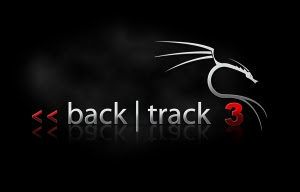I'm a fan of Open Source software, and this post is about the biggest of them all. Linux. And not just any linux, its about Multimedia Linux. What the heck is that?
Well, i just included that multimedia part to get your attention, but this post is about linux operating systems created with multimedia in mind. This includes audio/video creating/editing software and serious graphics creation/editing software. In the days olden, this might have passed off as a dream, but nowadays, some of the best multimedia programs available are open source.
And these linux distributions i'm about to pen down grabs all these 'best-of-the-best' linux software into a single distribution, which is a great thing because, most of these software are hard to configure for the average computer user (who happens to be a windows user most of the time), and well, some people(like me) likes to collect linux distros (like collecting stamps. No just kidding!).
So, if you do want to try out these multimedia OSs, here are the links.
Musix GNU + LinuxA Linux distribution based on Knoppix. This OS has all the bells and whistles you would expect from a multimedia system including software for video editing, audio editing, audio creation using midi and many other software. But dont be fooled by the multimedia tag, because this OS has all the other features you would expect from a fully fledged OS (mainly because its based on the stable Debian kernel).
I actually tried out the live CD version of this software, and I have to say it
seems pretty capable of doing major multimedia tinkering, but I couldn't test these out since I don't have any midi enabled devices (and also I don't have a scrap of knowledge on music). OS itself was fast and thats a good thing considering I was testing out a live CD (without installing) inside VirtualBox.
ArtistXAnother Linux Distro based on D

ebian. Has a lot of software included into the DVD like Blender, Cinelerra, GIMP, Rosegarden, etc...
I haven't actually tried this OS (Live DVD too big to download for me!) but the description and the software lineup is pretty impressive. But the biggest drawback is the lack of a proper installation method. When I say proper, I mean a method that is easy for the average user. The current method of installation requires the user to first install the core Debian system and then use the aptitude command to install a big list of software through the internet. Experienced users can follow the installation guide provided at their site to get a working ArtistX OS installed onto the hard drive.
dyne:bolicA different, yet equally

good (or better?) multimedia OS. This is different because, well, it has mostly to do with the fact that dyne:bolic GUI is not the familiar kde or Gnome, but a more light weight XFCE. The OS website says the creator wanted to make sure that the system works on as many low end machines as possible, hence the use of XFCE. I tested this OS in VirtualBox and the results were very good. It has an impressive collection of software for audio/video creation and editing, and for all other needs as well. Another unique feature of this OS is that it explicitly gives the user the option of saving their work on the local hard drives when working in the Live CD (the other OSs mentioned here don't have this feature, although an experienced linux user can mount the local hard drives and achieve the same thing).






